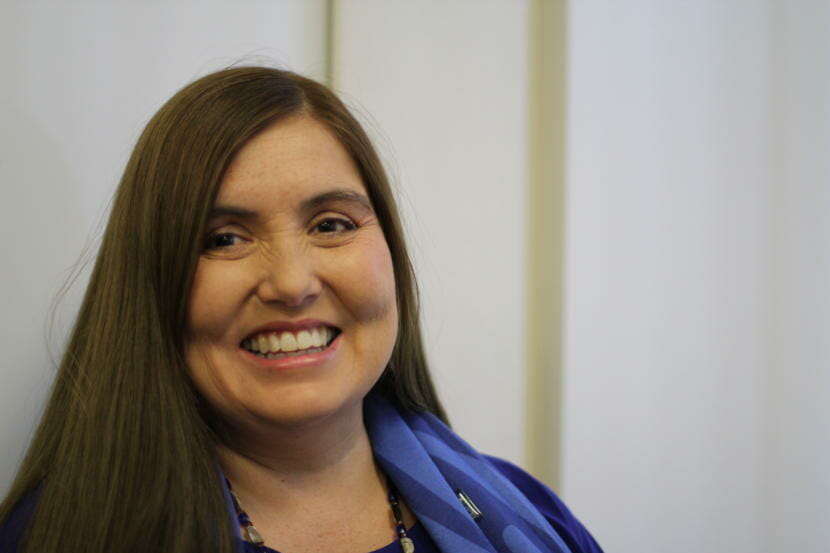
On July 27, the U.S. Department of Interior announced it will open its first office dedicated to investigating cold cases in what has been called an epidemic of Murdered and Missing Indigenous People. There will be seven of these offices nationwide. Alaska’s office will be in Anchorage and opens next month.
In a related effort, the U.S. Justice Department has appointed a former tribal judge and educator, Ingrid Cumberlidge, to be the state’s Missing and Murdered Indigenous Persons Coordinator on the dozens and dozens of cases in Alaska.
Cumberlidge was a teacher and principal in the Aleutians East Borough School District and also served as tribal judge who presided over child protection and protective order cases.
Her new job will include helping communities develop response plans for times when someone is murdered or goes missing.
She was appointed to the position by the U.S. Attorney’s office — part of the Justice Department.
U.S. Attorney Bryan Schroder says Cumberlidge will also help investigators sift through the state’s missing persons database.
“It’s challenging, though. That can include things like missing fishermen off of ships or aviation accidents,” Schroder said. “So, trying to comb through all that data and come out with the lists of people who could be missing or murdered because of foul play, you know, that’s a difficult task.”
That work will be important as the new federal office in Anchorage gears up to tackle cold cases involving missing and murdered American Indians and Alaska Natives.
Debra O’Gara is optimistic and says it’s a sign that the issue is being taken seriously.
“Attorney General’s office and the Department of Justice is at least willing to take some steps in helping to remedy the situation that has just devastated so many communities and families,” she said.
O’Gara is with the Fairbanks-based Alaska Native Women’s Resource Center and herself served as a tribal judge and state magistrate judge in Southeast Alaska.
She says there are several factors behind Alaska’s high number of cases, most stem from the racism, sexism, and misogyny ingrained into institutions.
O’Gara says the authorities have routinely shown outright disregard for missing or murdered Indigenous women.
“The other problem is that even when there is law enforcement in a village, in a small village, what’s happened is that some of those law enforcement are perpetrators themselves having been already fired,” she said. “And, some of those stories are coming out.”
O’Gara says another problem unique to Alaska is it may take days for investigators to get to a village by plane or snowmachine. Investigations can slow down or stall as a result.
According to the Seattle-based Urban Indian Health Institute, 52 Indigenous women and girls are listed as missing or murdered in Alaska. That’s the fourth highest of all states.
Anchorage alone has 31 cases. It’s the third highest of all cities nationwide.
Cumberlidge’s position is funded for at least a year. It comes out of $1.5 million set aside by the Justice Department to hire coordinators in 11 states, and partially stems from U.S. Attorney General William Barr’s visit to Alaska last year.
